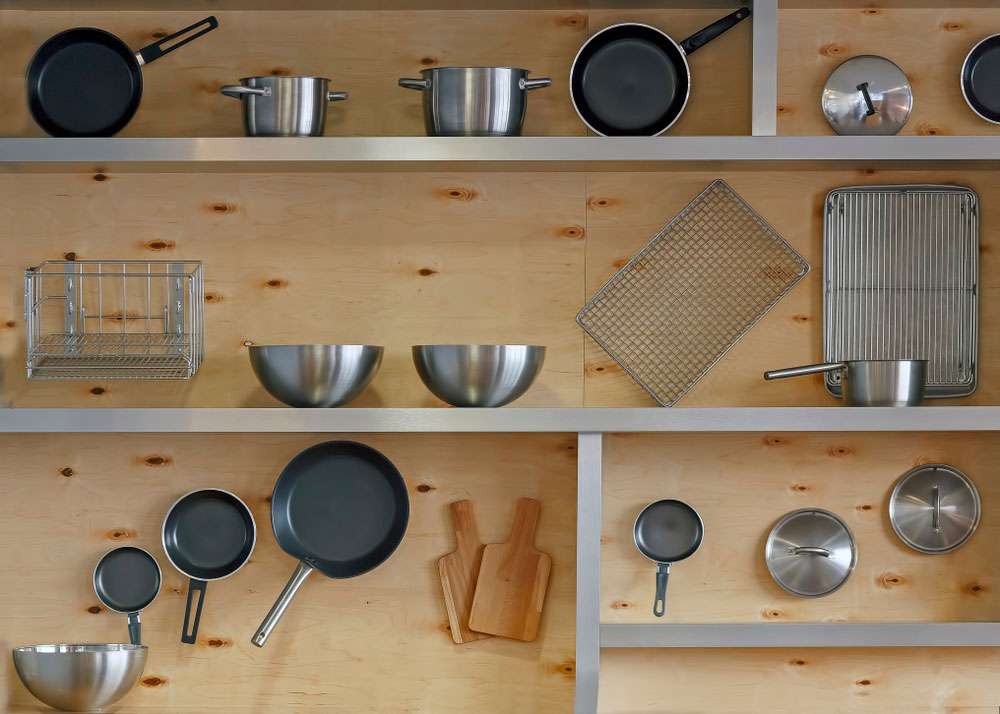If you are a health-conscious consumer, then you probably already know which healthy foods to eat and which unhealthy foods to avoid. We tend to focus on the foods that are best for our well-being as well as the many advantages of cooking at home. But how many of us think of how the type of cookware we use to prepare those healthy foods may be affecting our health?
Let’s take a look at the cookware I recommend you avoid and their healthier alternatives.
Cookware to avoid:
Non-stick
I say no to Teflon-coated and other non-stick pans and pots. One of the chemicals used to make Teflon and other non-stick coatings is called perfluorooctanoic acid or PFOA. The International Agency for Research on Cancer (IARC), part of the World Health Organization (WHO), has classified PFOA as “possibly carcinogenic to humans” while the US Environmental Protection Agency (EPA) has reportedly stated that there is “suggestive evidence of carcinogenicity, but not sufficient to assess human carcinogenic potential.”
Aluminum
When used to cook acidic foods such as tomato sauce, aluminum cookware can leach aluminum into food. This makes it the second type of cookware I recommend you eliminate from your kitchen.
Copper
Although it is well-known for its super heat conductivity, copper and nickel, both toxic heavy metals that can be found in copper cookware, can leach into food, especially if used to cooked acidic foods. Never buy copper cookware in which the inside surface is lined with copper, rather than a safe metal such as stainless steel.
These four types of cookware are non-toxic, easy to find, and offer great cooking and heating properties without you having to worry about toxins or heavy metals leaking into your food.
Cast iron
Historically, most people cooked with cast iron pots and pans. Known for its even heat distribution and durability, cast iron cookware doesn’t contain any toxic substances, making it safe to use. Unglazed cast iron may transfer iron into your food, but iron is considered a healthy food additive. Only those with high blood levels of iron should choose a different option.
Cast iron must be treated (seasoned) with oil to bring out its non-stick quality. Flaxseed oil is one of the best oils for this. Wait with cooking very acidic foods, like tomatoes and citrus juices, until the cookware is highly seasoned as high acidity will strip the seasoning and may result in discolored and metallic-tasting food.
Stainless steel
Along with cast iron, stainless steel is considered to be one of the safest non-toxic cookware. It resists leaching and reactivity. Make sure to clean it gently in order not to damage the lining.
Glass
This inert, or chemically inactive, cookware is not just non-toxic but environmentally-friendly to boot. It can also be used for baking and to store food as a safer alternative to plastic which may contain toxic bisphenol A (BPA).
Titanium cookware
Titanium is a non-harmful metal. Titanium cookware often comes with an aluminum base that promotes fast and even heat distribution and good heat retention. However, the non-porous, non-sticky external titanium surface doesn’t permit any leaching of aluminum, making it safe to use.
Do differentiate between pure titanium and titanium-reinforced cookware. In the latter’s case, its safety depends on the material used in the non-stick coating. Check all the substances used to make sure it is free of PFOA and any other potentially harmful materials.
While the purchase of safe and good quality cookware has a price tag attached to it, it is an investment in your health that will pay off in the long run. Affordable good quality cast iron and glass cookware are widely available in the market. Stainless steel is the more expensive option, but a high-quality set of stainless cookware can last a lifetime.
Nutrition is a complete cycle that starts on the farm and ends at the dining table. Make healthy cookware a part of this cycle. Get rid of your old aluminum, copper, or non-stick cookware and carefully replace them with quality non-toxic cookware in which you can cook your food without jeopardizing your and your family’s health and well-being.

